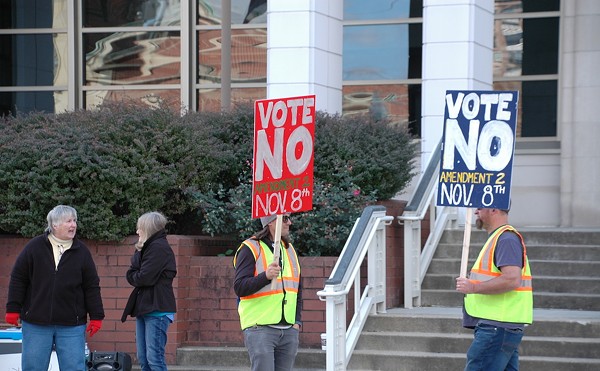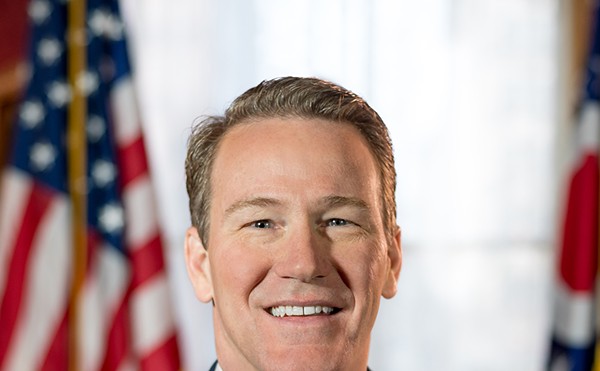City Manager Valerie Lemmie didn't anticipate making a funding request Wednesday for a development project in Madisonville. The meeting is the last before city council breaks for summer — and a key deadline in the project looms Aug. 1.
Members of Madisonville Weed and Seed consider the redevelopment of "Block D," Madison Road and Whetsel Avenue, their last shot at revitalizing the heart of their neighborhood (see "Pigeons and Promises," issue of June 9-15). But a June 18 letter from Lemmie discouraged their hopes for council action this week.
Just one month earlier, Assistant City Manager Deborah Holston had written the project's designer, Jay Voss of Middle Earth Developers Inc., assuring him, "Middle Earth has submitted all of the requested documents and it is clear that much time and money has gone into the proposal."
But Lemmie's letter said the city still had four major areas of concern, among them the developer's risk.
Agreements to purchase the buildings for the redevelopment expire Aug. 1, before council reconvenes. Advocates for the Madisonville project implored council for help June 23. Mayor Charlie Luken pledged his and council's "collective energy" toward getting them at least the $1.2 million needed so the project doesn't fall through.
But a meeting a day later with Oren Henry, acting director of the Department of Community Development and Planning, didn't end nearly so well, according to Lois Day, chair of Madisonville Weed and Seed's Restoration Committee.
Henry told them it didn't matter what the mayor had said, his department couldn't put their plan before council Wednesday, Day says.
But she says Madisonville Weed and Seed has also been told that Lemmie will start working with them directly, so even if council doesn't vote on a final plan before summer, the project might still have a chance.
"What we want to see happen is city council give (Lemmie) the authority to work on this project with us, to give us the money once she's satisfied that the questions have been answered," Day says. "The points they have raised are valid. Our only argument is that, why were they not presented to us to answer 60, 90, 120 days ago?"
A.J. Nabi, an immigrant from Kuwait whose family owns two businesses a block from the site of the proposed development, accuses the project's leaders of holding secret meetings. He worries that the Block D plan will lessen chances of city financing for other projects in Madisonville.
"My feeling is not to give one developer $2.8 million," Nabi says.
He's also concerned about gentrification, hinting at racist and classist motivations for wanting to draw patrons from Hyde Park and Indian Hill into Madisonville.
Gesturing to a man who has lived 75 years in the neighborhood, Nabi says that investment in Madisonville should celebrate existing residents and shore up businesses such as the Barnes Barber Shop that sits across Madison Road from his family's Palm Tree Market.
He says he's shared those concerns with city officials and has pulled together a Madisonville Business Association to make sure all voices are represented.
Findlay Market, which was supposed to be able to support itself by this summer, has asked city council for more money. But at the June 23 council meeting, Vice Mayor Alicia Reece and council members Christopher Smitherman and Laketa Cole spoke sharply against Findlay Market's poor record of inclusion. The three said they'd vote down additional funding unless the demographics of the market's vendors change. Having 17 African-American vendors outside the enclosed market and none inside it just doesn't cut it, they said.
All The News That Fits: Leads, entrails and tales we couldn't get to.





